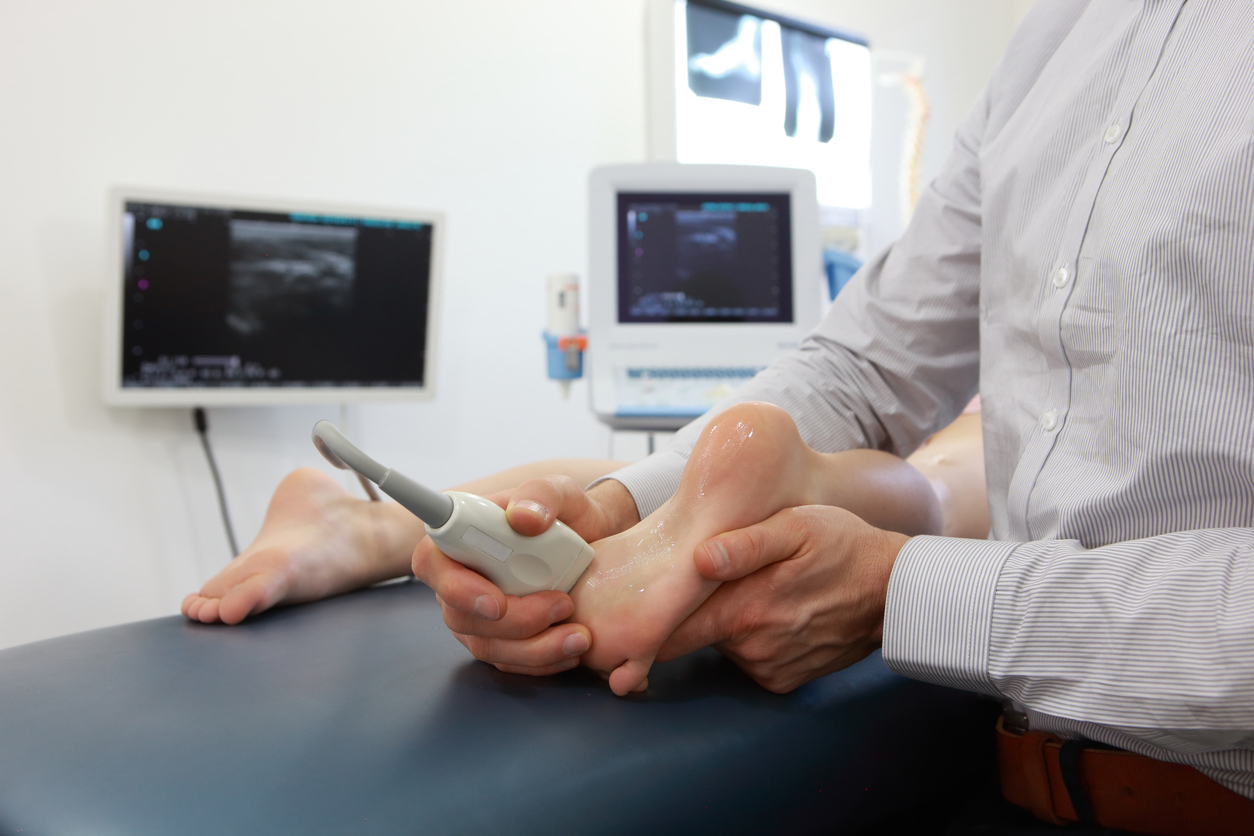General Ultrasounds
When you arrive, our friendly reception staff will check and register your details into our system. Payment is taken according to your scan type.
Your scan is then performed by our highly skilled sonographer. It is routine for the sonographer to ask questions about your condition, however your privacy is respected at all times.
Your scan is performed with particular emphasis on answering the question asked by your referrer, as well as looking for any other findings. A chaperone is available for sensitive examinations.
Your scan is reviewed by the sonographer and radiologist with the results sent by a secure electronic link to your referrer.
Interventional
What happens during the procedure?
There is information to read about the procedure. You can ask questions at any time.
You will be asked to lie on the examination table and the area that needs to be treated is uncovered and prepared.
A specialist doctor (radiologist) uses ultrasound to guide the procedure, to ensure exact placement of the needle and materials. Special care is taken to reduce the chance of
infection by using sterilised equipment and antiseptic.
What does the procedure feel like?
For most people, this feels like a blood test. Local anaesthetic is used which helps reduce discomfort for a short time (1-6 hours).
What happens after the procedure?
After the procedure, the area may feel tight or swollen for 1-2 days. If you have been given cortisone, it can take several days before anything feels different. You can take other pain medication, if needed. You should avoid exercise or unnecessary activity using the area
and check with your referrer, who can advise you what to do next.
Cortisone injection
What is a cortisone injection?
Cortisone is a type of steroid. It is a chemical that your body normally makes and is an anti-inflammatory, which helps reduce pain and swelling and is commonly used for many kinds of injuries. It does not speed up healing, and often additional treatment (e.g. physiotherapy) is required.
Don’t Forget to Bring Along to Your Scan:
- Your referral form
- Growth chart (if you have one for pregnancy scans)
- All previous images and reports if you have them (i.e. X-ray, Ultrasound, CT or MRI)


